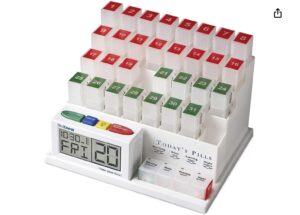Researchers analyzed data from nearly 200,000 participants in the UK Biobank who live with chronic non-cancer pain. Their goal? To understand how regular opioid use affects the brain over time.
🔍 What They Found:
- People who regularly used opioids had a 20% higher risk of developing dementia.
- Those using strong opioids had a 72% higher risk of all-cause dementia.
- In the case of specific types of dementia, they had a 155% higher risk of vascular dementia.
- Brain scans showed reduced volumes in key areas like the hippocampus and white matter—regions critical for memory and thinking.
- Cognitive tests revealed lower fluid intelligence among regular opioid users.
🧠 The Brain Connection: Opioids interact with receptors in the brain that regulate pain, but they may also disrupt areas involved in memory and decision-making. The hippocampus, a key memory center, appears particularly vulnerable.
💬 What Researchers Say: “Our findings underscore the importance of weighing the cognitive risks of opioid use when managing chronic pain,” said lead author Dr. Feng Sha. “The risk increases with opioid strength, and the impact on brain structure and function is significant.”
💊 Which Opioids Were Studied?
The study grouped opioids into strong and weak categories. Below are the ones specifically referenced, with both generic and common brand names:
💊 Strong Opioids
| Generic Name | Common Brand Name(s) |
|---|---|
| Morphine | MS Contin, Kadian, Roxanol |
| Buprenorphine | Suboxone, Butrans, Belbuca |
| Oxycodone | OxyContin, Percocet, Roxicodone |
| Fentanyl | Duragesic, Actiq, Sublimaze |
💊 Weak Opioids
| Generic Name | Common Brand Name(s) |
|---|---|
| Codeine | Tylenol with Codeine, Robitussin AC |
| Tramadol | Ultram, ConZip |
🔎 Strong opioids were linked to the highest dementia risk—especially vascular dementia.
📣 What’s Next? The study calls for deeper research into the biological mechanisms behind these effects. It also urges doctors and patients to discuss cognitive risks when considering long-term opioid therapy.
💬 Bottom Line:
If you or a loved one is living with chronic pain, pain relief is essential—but so is protecting your brain. Start the conversation with your healthcare provider about safe and effective alternatives. And as always, Alzheimer’s Weekly is here to support you—week by week.
🧘♀️ Safer Pain Relief & Caregiver Tips
A helpful sidebar from Alzheimer’s Weekly
💡 Safer Pain Relief Options
- Physical Therapy – Gentle movement improves strength and flexibility.
- Targeted Injections – Corticosteroids or nerve blocks for focused relief.
- Mindfulness & CBT – Mental tools to reduce the perception of pain.
- Massage & Acupuncture – Non-drug approaches with proven results.
- Heat & Cold Therapy – Great for arthritis, joint pain, and inflammation.
👩⚕️ Tips for Caregivers
- Watch for signs of overmedication like confusion or dizziness.
- Ask providers, “Are there non-opioid alternatives we could try?”
- Promote gentle, consistent movement to help with pain and independence.
- Create a calm environment to ease tension and support healing.
- Remember: Caregivers need care, too. Schedule breaks, ask for help, and connect with support groups.











